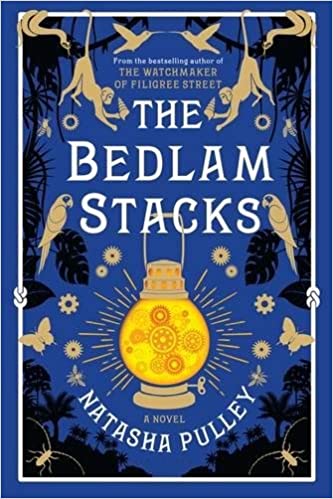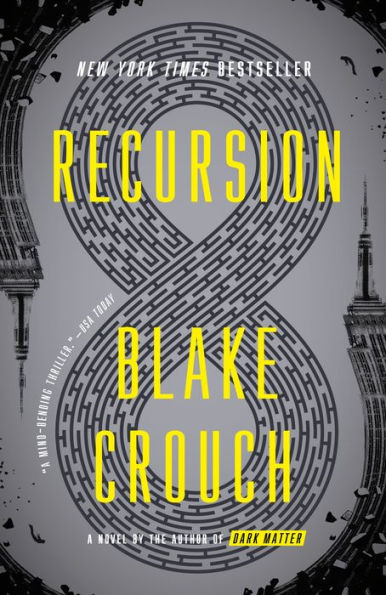This is an “old” document that was passed around my grandmother’s family. It gives some history of the Scott family of Annegrove Abbey in Ireland. I’m sharing it here in case it is useful or interesting to others.
And, for my own personal record keeping, here are a few links I’ve found online about parts of this family:
Account of the Scotts
Copied by M. E. Scott, Dec 30th, 1896.
[Parenthetical notes added by Blas Uberuaga]
James Scott from whom our branch of the family has sprung, came to Ireland [around 1690] as an officer [captain] in the army of William III.
With better fortune than his brother officer, Thomas Scott, who came to the country at the same time, he survived the Irish Civil War, and lived to turn his weapons of war into ploughshares and pruning hooks, which he seems to have wielded with a skill and success suggestive of a conjecture that he came from a family occupying some property or estate in England, where he became acquainted with the details of pastoral or agricultural pursuits.
At the commencement of the 18th century, he purchased some properties [Annegrove Abbey, then called Cahirdaragh] in the Queen’s County [now called County Laois or Leix], and entered on his new career with an energy and courage deserving of the highest praise.
To comprehend in any degree the dangers and difficulties he had to encounter we must refer to the state of Ireland, semi-civilized at that time, and read the graphic accounts recently written by those brave sons of noblemen and gentlemen, who for various reasons have emigrated to Australia, New Zealand, America and Canada. There were no Banks for the safe-custody and management of money; no well-kept roads or carriages suited to long journeys, so our Pilgrim Father was compelled to mount his sure-footed roadster, and with his money in his saddle-bags, and Pistols in his holster, to travel to Limerick and the surrounding districts for the purpose of purchasing young stock to grow and fatten on his rich Queen’s County farm. In this way he evidently increased his original capital, exhibiting that untiring activity and fixity of purpose which are usually found to characterize a life of successful speculation in lawful pursuits.
This James married Sarah Llewellyn (who died 1734) having issue one son James who married a Miss Stanley of whom were descended three sons, James, John, and Edward, who appears to have obtained a Commission in the Army and to have been killed in battle.
[James was my 7th great-grandfather]
JAMES. When Curate of Cl—– [missing in the source], nearly fifty years ago, I had old parishoners who knew James well, and always spoke of him with the greatest regard and respect. According to their account some years elapsed before there came an increase of family, which very much grieved Mrs. Scott; when one morning a strange woman came to the door seeking charity. As was her custom, the kind-hearted lady not only relieved her pleaded want, but spoke some comforting words at the same time; after which the pretended beggar acknowledged the object she had in view, stating that she knew her goodness and her trouble, and came to say a word to her. What that word was did not transpire; but was represented as the harbinger of a birth which brought joy to the hearts of the worthy couple.
This James was spoken of to me as a man of remarkably sound judgement, whose opinion on various subjects was really valuable, and whose decision as a J.P. was never reversed. He was said to be remarkably frugal and economical, retaining larger sums of money that usual in his own custody; for this there may have been a very natural and laudable motive, his paternal affection bending him to leave his only child, a son, as independent as possible, having, I believe, previously settled Annegrove Abbey on him at his marriage. Of this however I am uncertain, but be this as it may, affection could not have been better bestowed than on my very dear and valued friend James Edmund Scott [1904 Burke’s lists middle name as Edward], “Captain Scott” as his contemporaries loved to call him, and who was without doubt one of the very finest specimens of an old Irish gentleman I ever came across. Hospitable almost to extravagance, and ever ready to do a kind act to those he esteemed, with a genial manner and pleasant humour which made his guests at Annegrove at home and happy, a happiness to which the many gifts of their kind hostess contributed.
JOHN SCOTT. John Scott, the second brother of James, was the father of seven sons. He held several valuable and important agencies, possessed considerable property in land about Dublin; built some of the best houses in Harcourt Street adjoining Lord Clonmell’s gardens, which, combined with the intimacy which existed leads me to conjecture that there was some connection or relationship between our Pilgrim Father and Thomas Scott who came over to Ireland with him in the army of William III. This John Scott seems to have paid no small attention to appearances; for instance, he used to ride through Dublin with his sons all mounted on horses or ponies suited to their age and size. He entertained expensively also. He died rather young, leaving his widow in good circumstances and a moderate provision for all his sons.
Humanly speaking, his death was a great misfortune to his family, as it left the boys without paternal advice and control, their Mother being devoted to what is called Society; and to this I attribute in a great measure the want of success of his offspring.
Sons of John Scott
JOHN, who commenced life as an attorney under favourable circumstances, but died without having made any mark in life, leaving one son, who obtained a Commission in the East India Company’s service and married it is reported, a lady of high connections and large property. During his Father’s lifetime he continued to remit to him large sums from India, but has not been heard of for many years. His name was Lambert, and he is said to have been very extravagant.
JAMES, obtained a Commission in the Army. A cheery jovial sort of man, who seemed anxious to enjoy life in his own way, whether rough or smooth. He told good stories and was very much liked in his regiment. On retiring from the Army, he took —— [missing in source], near Abbeyleix and other places in England and Ireland. He had several daughters and one son, who married a sister of Rev. J. H. Scott, of Serr Kyran Glebe, Parsonstown.
GEORGE, commenced life with excellent prospects; well-looking, full of energy, and with right good abilities and business qualifications.
At the early age of twenty-one, he married Sarah Handcock, over whose fair face there never passed a look of anger, nor from her birth to her death was she ever known to utter an unkind word.
With many good qualities, George had a passion for horse-racing and billiards, which necessarily interfered with his office work and produced the usual results. The death of his dear wife to whom he was deeply attached, at last so affected him that he realised that vanity of all earthly enjoyments, and died of a broken heart at the age of fifty-four.
SAMUEL also entered the Army. He was a brave officer, greatly beloved by his men and brother officers. He saw much service during the Peninsular War. When the army was in winter quarters he asked leave of absence to see his Father who was in delicate health. The Duke of Wellington refused permission, but, headstrong as he always was, he gave himself leave, only to find that he had very properly been deprived of his commission. Nothing daunted he rejoined, fought as a volunteer, attracted the Duke’s attention (who had always liked him) and was re-instated. When he was quartered in Dublin, William John Scott of Pallas Green often experienced his hospitality. (His Commission, dated 1810, is in possession of Henry Scott grandson of William Scott of Pallas Green).
BENJAMIN was a universal genius, agent to an Insurance Company, Secretary to companies etc. He married a sister of Dr Adams by whom he had at least two sons. One, Henry, is now Rector of a parish in Australia; who married Jane, second daughter of James Edward and Sally Scott; and the other, Allan, who now I believe has fixed his residence in Montreal. My sister-in-law mentions him as a clever gentlemanlike young man, who has travelled a great deal, and to some purpose.
ROBERT, the softest of the family, was bound by the late Sir Wm Stamer, one of the first wine merchants in Dublin. He married a niece of the late Ventry Henchy, well known in Dublin circles. He and his wife spent more than they gained, and so he emigrated to Australia with his children, all daughters.
EDWARD was said to be the best-looking of all the family. When doing duty as a Militia officer, he attracted the attention of the Commanding Officer of a regiment embarking for foreign service, by an act of extraordinary courage and presence of mind. The officer asked him why he was not in the line. Edward replied that his purchase-money was lodged, but he had not yet heard from the War Office. After a short time he was gazetted to a Cornetcy in a celebrated Dragoon Regiment without purchase. He joined in India, but after a few years returned home. When a little boy I thought him beautiful, and was wonderfully attracted by his gentle, serious, loving manner. He verbally bequeathed to me his stock of Indian silk pocket-handkerchiefs, which I remember being quite proud of, as there were none such to be purchased.
WILLIAM entered Trinity College, Dublin, took his degree and was ordained in due course, and became Rector of Pallas Green. He was a loving Father, and devoted himself to forwarding the education and welfare of his children.
Copy of an account of the SCOTTS of ANNEGROVE ABBEY, QUEEN’S COUNTY
written by Miss C. A. Scott (Mrs. Sydserff) Dublin, 1893.
The first James Scott of Annegrove Abbey married a Miss Sarah Llewellyn who died 1734. They had only one son and possibly a daughter who married a Walpole and somewhat beneath her. [James was my 7th great grandfather]
I have heard something of this before and fancy it true. I know who the Walpoles are and have often heard the present members of the family spoken of for their good looks and immense height.
I believe some of them are wool buyers on a large scale. (When Canon Scott was taking duty near Calier at Vicar’s Hill, some Walpoles came into the Church and claimed cousinship, but I do not think the claim was authenticated except by legend. The family was a very large one and they were all very good looking. R.M.S.)
The second James married a Miss Stanley, and there is still some very old plate with the Stanley crest on it. [James was my 6th great grandfather]
They had three sons, James, John [John was my 5th great grandfather], and Edward. James married a Miss Butler of Knocka Castle, Co. Tipperary [she was Anne Butler, daughter of William Butler], and had one child, James Edmund, who married Rose, daughter of Sir R. [Richard] Wheeler Cuffe, Bart. of Leyrath, Co. Kilkenny. They had one son, James William Butler, and three daughters who died unmarried. James Wm. Butler married Elizabeth Rosetta, daughter of J. Bolton Massey Esq., of Ballywire, Tipperary, and 55, Stephen’s Green, Dublin. They had one son, James Wm. Edmund [1904 Burke’s has him as owner of Annegrove Abbey in 1904], and four daughters:
- Elizabeth Rosetta, who married Sir Wm. Hanoly Glover [real name was Sir John Hawley Glover, born 24 Feb 1829 in Yateley, Hampshire, England to Rev. Frederick Augustus Glover and Mary Broughton. Died 30 Sep 1885 in London], Governor of Newfoundland.
- Jane, killed by a fall from a balcony at Kingstown.
- Charlotte Annie, who married J. Buchan Sydserff [full name: John Buchan-Sydserff, born 5 Oct 1848 in Edinburgh, Scotland to Thomas Buchan-Sydserff and Margaret Higgins Mowbray], of Edinburgh. [They had three children: Archibald Thomas Buchan-Sydserff, born 6 Jun 1899, died 17 Dec 1899, Rosetta Margaret Buchan-Sydserff and Norah Kathleen Buchan-Sydserff.]
- Frances Katherine, who married Stafford Delmerge Esq [full name: Adam William Stafford Delmege, Esq., son of John Delmege and Maria Anna Barry]. [They had two children Eyre Bolton Massy Delmege and Hugh Barry Evans Delmege, born 25 Mar 1891.]
Like this:
Like Loading...


